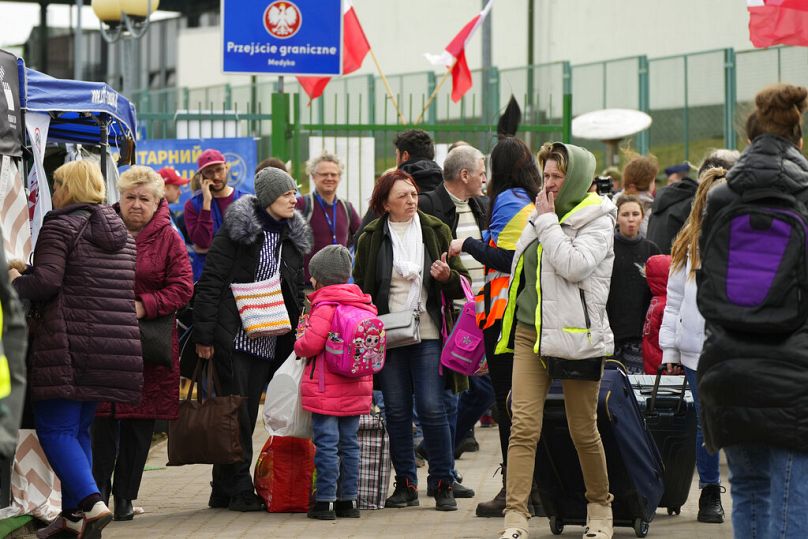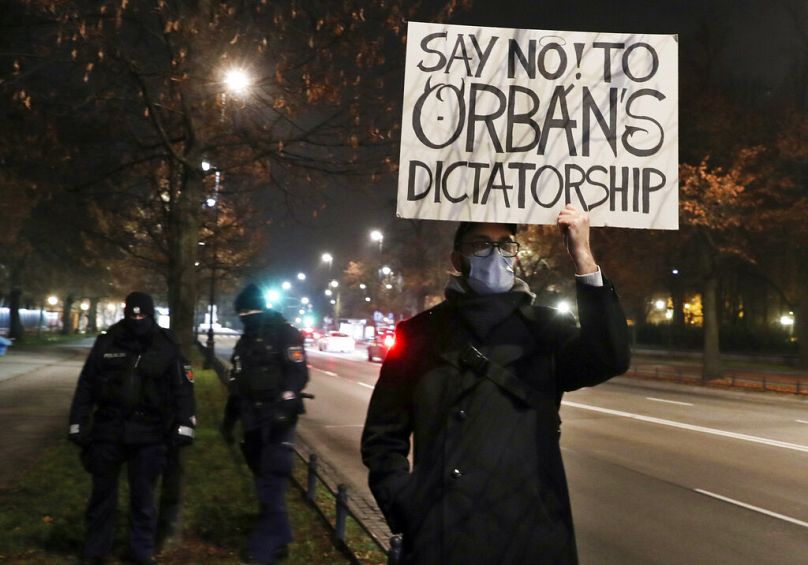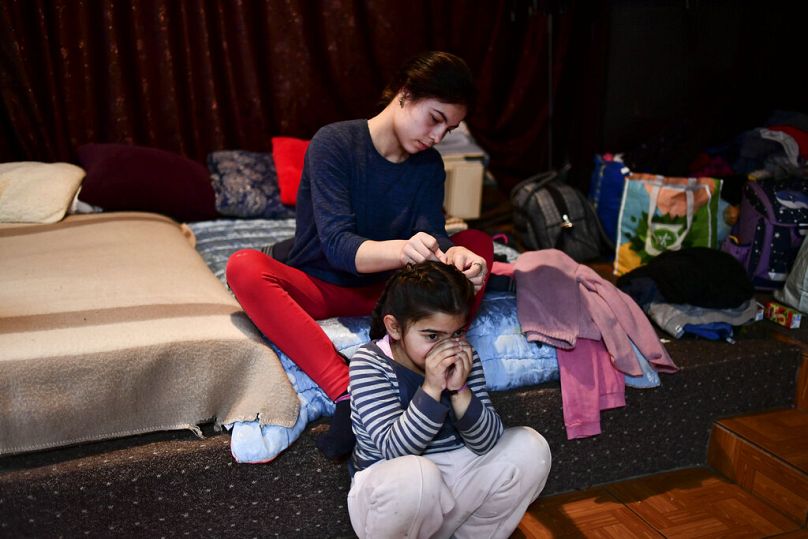According to a Center for Reproductive Rights report, sexual assault victims, LGBT Ukrainians, and minorities fleeing the war have to deal with sexual healthcare limitations in Poland, Hungary, Slovakia, and Romania.
Survivors of wartime rape and conflict-related sexual violence in Ukraine who fled to Poland after the full-scale invasion faced almost impossible conditions in dealing with unwanted pregnancies and sexual healthcare, according to a report by the Center for Reproductive Rights international NGO.
 ADVERTISEMENT
ADVERTISEMENT
 ADVERTISEMENT
ADVERTISEMENT
“For survivors of conflict-related sexual violence in Ukraine who subsequently seek refuge in, or transit through, Poland, the law gravely exacerbates and aggravates the harm and compounds the violations they have already endured,” the report states.
The report was the result of a collective effort by nine national and international human rights organizations.
As Ukrainian men of military age are largely prohibited from leaving the country, the majority of adult refugees are women.
The Law and Justice or PiS Party has implemented some of the most draconian anti-abortion measures in Europe, causing massive protests in recent years.
Several women have died in Poland due to untreated pregnancy complications such as septic shock.
For Ukrainian refugee women, “the prospect of continuing a pregnancy resulting from rape is often untenable; yet instead of facilitating urgent access to abortion care when needed, Polish law obstructs their access to care,” the report continues.
Even though abortion is legal in Poland if a pregnancy results from sexual assault, the exception is illusory in practice. Before abortion care can be provided to survivors, they must report to police and obtain a prosecutorial certificate within 12 weeks of becoming pregnant.
Women who have experienced conflict-related sexual violence in Ukraine tend not to report the violence to others in order to secure abortion care in Poland, according to subjects interviewed by the Center for Reproductive Rights. Instead, they seek out abortion medication online or travel outside of Poland for care.
Upon arrival in Poland, many Ukrainian refugees were shocked to learn abortions are basically illegal and inaccessible.
“It was often unfathomable for refugees that an essential form of healthcare, which is legal and accessible in Ukraine, could be prohibited in the EU,” said the report.
The ongoing war in Ukraine has forced around 10 million refugees — a quarter of the country's population — to flee through Poland. The neighbouring country still remains the largest EU host of Ukrainian refugees, despite many travelling to other EU countries and some returning to Ukraine when fighting largely shifted to the eastern front.
Illiberal policies take a toll on Ukrainian women
In addition, the report criticised Hungary, Slovakia, and Romania, all neighbours of Ukraine where many refugees first sought refuge.
“Hungary, Poland, Romania and Slovakia are some of the most challenging contexts in Europe when it comes to sexual and reproductive healthcare and gender-based violence support services,” according to the Center for Reproductive Rights.
Women and girls fleeing Ukraine to Hungary, Poland, Romania and Slovakia faced serious concerns regarding their ability to access basic healthcare, services and support.
“It became clear that violations of fundamental rights within Ukraine were being compounded by rights violations outside of the country. There was particular concern for refugees who had suffered conflict-related sexual and gender-based violence in Ukraine, including rape and other gender-based crimes,” the report concludes.
Ever since Viktor Orban came to power in Hungary in 2010, laws have been passed walking back previously liberal abortion laws. Hungarian legislation began mimicking US practices when it came to permitting abortion, such as forcing medical providers to listen for a “foetal heartbeat”.
To obtain an abortion, a woman needs a gynaecological certificate confirming her pregnancy, as well as counseling on adoption and state benefits for mothers from family services twice, at least three days apart. Then, she can receive a referral for an abortion at a hospital.
Far-right politicians across Europe insist that near-total abortion bans are required to increase the “ethnic European” or white populations of the continent and ensure they are not outnumbered by refugees and migrants, especially those coming from Africa or the Middle East.
Women seek out alternative options
Women who fled Ukraine or live in the EU have increasingly established their own support networks and means of obtaining healthcare.
Several anonymous interviewees told the NGO that they order medicine from friends still living in Ukraine because it is faster to ship it out of a war zone than to access it in the EU. The women also choose to see the local gynecologists in western Ukrainian cities — Lviv, for example, remains relatively safe.
But having to choose between general safety and healthcare concerns has been a stressful, anxiety-inducing and humiliating experience for them.
“Refugees from Ukraine regularly postpone efforts to obtain care for as long as possible. Others defer travel back to Ukraine to seek healthcare for extended time periods due to security concerns, family care burdens and financial considerations. These delays mean they often do not seek medical attention until the matter becomes urgent and their health is at risk,” said the report.
While Ukrainians are covered by the EU Temporary Protection Directive, meaning that their non-EU citizenship and medical costs should not be a barrier to them getting healthcare, it remains out of reach due to the way legislation is implemented on a national level.
Roma, LGBT refugees face double discrimination
Minority refugees as well as LGBT Ukrainians face discrimination on two fronts. Hungary and Poland, in particular, have enacted legislation targeting these groups, and the illiberal practices in these countries are compounded when the refugees are not straight, gender-conforming or ethnic Ukrainians.
“Harmful stereotypes and gender norms impact the care-seeking experiences of women traveling alone, adolescents, Roma and LGBTQ+ refugees,” the report highlights.
Justyna Nakielska, part of the Campaign Against Homophobia in Poland, says that while the government has been praised for accepting refugees since the beginning of the invasion, it has completely ignored LGBT Ukranians.
“At the level of government grants, no LGBT organisation got any money to help refugees from the community - total systemic invisibility, total exclusion from the whole system,” said Nakielska.
The lacklustre institutional reactions have forced NGOs — whose scope and budgets are much smaller than those of government agencies — to step in and try to compensate for the deficiencies in the system. Experts highlight that such an approach is unsustainable in the long term and places extreme pressure on these organisations.













